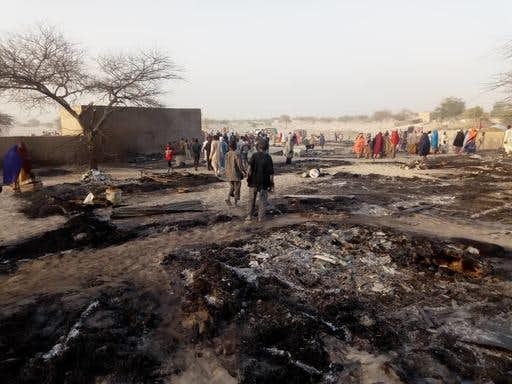Submitted by Phyllis Dichter Forbes.
In February, FON approved a project with the Kirker Foundation of Niger (KF/N) for $4,000 to help them deliver critically needed medicines and medical supplies, strengthen KF/N advocacy for health services in Niger, and increase local government inputs to promote long-term sustainability of KF/N efforts. These funds will help with the internal Niger costs of clearing the first MAP International shipment of medicines of 2019, over $20 million of medications including antibiotics, eyeglasses and accessories, vitamins as well as medicine for cancer and heart disease, and delivering the medicines to approximately 12 hospitals in Niger. It is due to arrive in Niamey in early May. Just to provide some context, two MAP shipments of medicines in 2018 provided one third of all medications used by the hospitals in Niger.
While we are supporting KF/N in this first MAP shipment through the FON grant, a number of former Niger PCV’s have been helping finance other shipments in earlier years. KAMRA, the US organization that arranges for US donors for the shipments, has been very proud of the RPCV response and wanted us to let everyone know that for each $100 donated, $280,000 in medicines will be made available to the people of Niger this year, a very impressive value for our contribution.
There is a lot of good news coming from the impressive work of the Kirker Foundation, but there is unfortunately still bad news. The good news is that KF/N is helping the local hospital and school in Maine organize kitchens that will serve one meal a day to hospital patients and one meal a day to school children using fortified rice-soy meal packets provided by Rise Against Hunger(RAH), another US organization that works in the poorest and most needy countries. The first two kitchens will have enough packets to provide one meal a day to 400 Nigeriens for up to six months. Once these kitchens are fully running, RAH hopes to expand shipments to set up other kitchens in the hospitals and schools in the Diffa Department and later elsewhere in Niger.
But equally impressive is the work KF/N and KAMRA have done to address health needs of Nigerien women by supporting a shipment of medical equipment and supplies from MedShare to equip a new operating room at the Maternity Hospital in Niamey. When the new OR is set up, Conscience International, a US NGO,very impressed by the seriousness of KF/N and the Ministry of Health, will be sending a team of surgeons to Niamey to train Nigerien providers from hospitals throughout Niger in fistula repair. Fistula is a devastating condition frequently experienced by Nigerien women as a result of early and frequent childbearing and a contributor to the high maternal morbidity and mortality rates in Niger.
The FON grant was also aimed at strengthening KF/N advocacy for health services and increasing local government inputs. KF/N has done well on meeting both objectives. In 2018, the Governor of Tillabery contributed funding to transport medicines from a shipment from Niamey to Tillabery. Transport costs were valued at US $1,000. KF/N is seeking similar local cost-sharing for the currently approved shipment, again from the Governor of Tillabery, as well as from other hospitals throughout Niger where shipments will be targeted.
The bad news is that no single week goes by without Boko Haram attacks in Niger, with more than 80 Nigeriens killed in the Diffa region in March alone. Just last week, Boko Haram attacked the village of Tam, only 10 miles from Maine-Soroa, decapitating the village chief and taking several hostages. Doctors Without Border office in Maine was burned to the ground on
April 27, 2019 and we are unsure how many casualties were involved. The situation in the Tillaberi area is also deteriorating.
The resilience of Nigeriens is amazing, and as disheartening as it is for all of us to see the reports of the continuing problems confronting this poor nation, we cannot give up on them. We should all take pride in the leadership that some Nigeriens are showing in the face of overwhelming odds, and to the extent that we can, we need to continue to find ways to support them.
